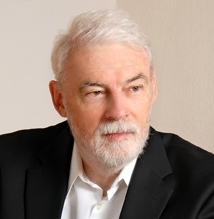And what rough beast, its hour come round at last,Slouches toward Bethlehem to be born?W. B. Yeats, The Second Coming
Mark the day! This Sunday, 29 March 2009, the 86 year-old Turkish Republic founded by Mustafa Kemal Atatürk votes. Ah democracy! Its distinctive aroma fills the already polluted air (and airwaves) endlessly replenished by the gasbag pundits. The ruling party, the AKP—in effect Prime Minister Recep Tayyip Erdoğan himself—has campaigned relentlessly, a televised montage of ubiquity. Buses, helicopters, and jets transport his essence, acclaimed by admirers as the new sultan, widely about the land. He descends denying any and all problems that so beseige his people, decries at the top of his lungs the inept opposition, and ignores completely the widespread corrupton that gnaws at the Turkish soul. He bellows in front of enormous pictures of Atatürk, a man he obviously despises. Why such a frenzied pace? Easy. To go for the knockout of his wobbly, geriatric, brain-dazed political opponents who so abstractly support the constitutional notion of the “democratic, secular and social state governed by the rule of law,” that is, Mustafa Kemal Atatürk’s Republic of Turkey, established on 29 October 1923, now in its 86th year, and in fast failing health.
Like the Seven Sleepers of Ephesus, the inept and scattered opposition seems to have suddenly awakened to the now seven year-old fait accompli power grab by the religious ruling party. Now, constitutionally guaranteed rights are routinely violated by the government. Police violence is rampant. Vocal left wing opposition are in jail under an unconstitutional scam called Ergenekon. The Turkish judicial system is in shreds. The army is defamed and seems powerless. Religious rule lurks. Hello! Hello! Poverty, corruption, unemployment, and hopelessness rage. But most Turks don’t seem to be the least upset, as may well be seen on Sunday.
One need not travel far to see historical parallels for what is happening in today’s Turkey. Just examine the history of similar US-induced mega-shocks in Iran (1953), Guatamala (1954), Chile (1956-1973), Brazil (1964), Bolivia (1971), and the ongoing fiasco in Iraq. It is a depressing legacy of America’s attempts to remake the world to suit its own self-interest. Bribery, violence, subversion, extortion, blackmail, torture, anti-modernism, anti-feminism, anti-intellectualism, economic exploitation, disappearance, destruction of collective cultural memory, economic deregulation, privatization, social spending cuts, book burnings, newspaper closings, street demonstration bans, cleaning of university faculties, so goes the full catastrophe of American meddling. A question for the Turks! Does any of this sound familiar?
Turkey is now defined by poverty, corruption, unemployment, and hopelessness. Its enormous youthful population is particularly dispirited. Divisiveness is sown by forces within and without the country. And Turkey’s so-called democracy, now in its 86th year, slouches toward another election. To what end?
There is another day to mark well. January 30, 1933. On this day another aged entity, the 86 year-old president of Germany, Paul von Hindenberg, appointed Adolph Hitler chancellor. The takeover was complete. It is vital to remember that Hitler’s rise to power was accomplished democratically. It seems to have been all so terribly easy. Hitler was dynamic, modern, and skillful. He was the first politician to take to the skies using airplanes during the 1932 campaign. Like a god he descended from the heavens to greet his minions. His party, the National Socialist German Workers Party (NSDAP) had its own newspaper group, the infamous Völkischer Beobachter and Goebbel’s own Der Angriff. Propaganda reigned supreme. The exagerrated threat from left wing Marxists, the touting of religion. (“Religion is not an opiate but sustenance for the soul of the Volk,” said Hitler), the emphasis of keeping women at home, the linking of organized labor with subversive forces, the weak political opposition whose only idea was to defend democracy—all these issues sped Hitler’s democratic rise to ultimate power in January 1933. A month later the Reichstag burned and civil liberties were soon thereafter suspended. All political opposition along with the trade unions were crushed. As president, Hindenberg was commander-in-chief of the German armed forces. A former war hero, the Prussian was revered by the German military. And Hitler, the new chancellor, needed the support of the military. Though he detested Hindenberg, in public appearances Hitler appeared constantly by the aging hero’s side. The ambitious man with the scrubby mustache was not stupid. Paul von Hindenberg died at the age of 86. And German democracy was buried with him. This Sunday, the 86 year-old Turkish democracy founded by Mustafa Kemal Atatürk votes. Whither?
Cem Ryan, Ph.D.
Istanbul
25 March 2009
FOR REASONS UNKNOWN





